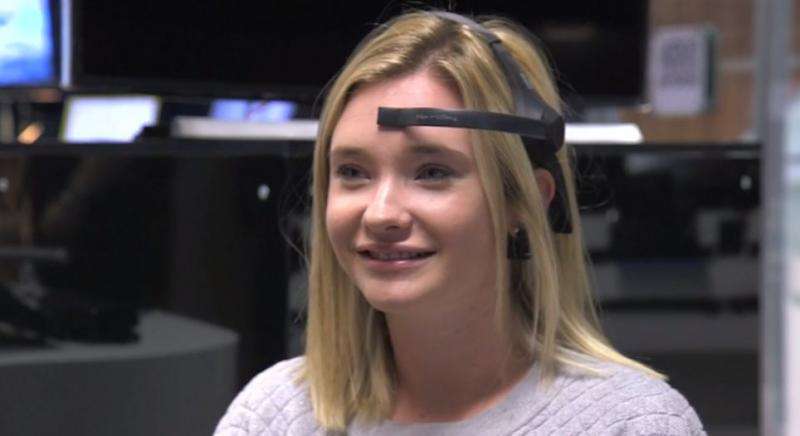June 18, 2015 weblog
BBC explores mind control over TV program choice

The world is growing increasingly digital, and so will modes of interaction. TV watchers might welcome an alternative to under-the-cushion clickers, a thought not lost on the people at BBC. What if our viewers were to control their sets with their minds? The BBC is actually testing a brainwave reading headset, which was developed by London-based technology company, This Place. The BBC has been in collaboration with This Place on this effort.
An experimental proof of concept was presented by Cyrus Saihan, head of business development for the BBC's Digital division. The headset works with an experimental version of the BBC's iPlayer on-demand platform. Saihan in BBC News on Thursday said "It's an internal prototype designed to give our program makers, technologists and other users an idea of how this technology might be used in future."
Stuart Dredge in The Guardian said "The experiment involved viewers wearing an electroencephalography brainwave-reading headset, which translated their grey matter's electrical activity into commands for iPlayer."
In the trial, 10 BBC staff wore the headset and tried to launch iPlayer and start watching a program.
"It was much easier for some than it was for others, but they all managed to get it to work," said Saihan.
One user, smiling , said, "It's nuts." He was wondering if, when watching with his son they would be fighting over brain waves to choose the program they could both watch. Another user, looking puzzled over its being able to work as easily as it did for her, said, "how do you do it?"
This Place, which developed the thought interface, designed it such that once the headset is worn and paired to a device, the popular TV programs are displayed. The interface cycles through each program until the user selects an item based on calibrated brainwaves. The selected program will play automatically until the user focuses to go back to the discovery interface.
Ben Aldred, a director at This Place, demonstrated the device to measure electrical activity in the brain. which allows you to control the interface using either meditation or attention. Russell Plunkett, innovations director, This Place, said, "To do this, I am going to meditate by closing my eyes and focusing on deep breaths."
"Please meditate to enter BBC iPlayer" read a bar across the middle of the screen; to the left, a bar showed the rising levels of meditation as he proceeded on. He saw a column of timelines of programs allowing him to select episodes shown on a column on the right.
This type of technology could be used to help people with disabilities who cannot use traditional TV remote controls easily. Dredge said that the BBC exploration was not just showcasing a gimmick; "it is part of the BBC's research into how technology might make its services more accessible to people with disabilities."
Saihan said the technology was still in early days but such people might benefit from brain-computer interfaces for digital services.
Toby Mildon, diversity and inclusion lead, BBC Digital, said the technology may really help people with severe disabilities with limited movement. He called it an "amazing concept." Given the pace of technology, he said that he thought "in the next 10 years, or 20 years, this technology can be fantastic."
Mildon added, "I dream of the day of just being able to think that I want to start a TV program and just use the power of my mind to do that without having to use my fingertips."
© 2015 Tech Xplore


















